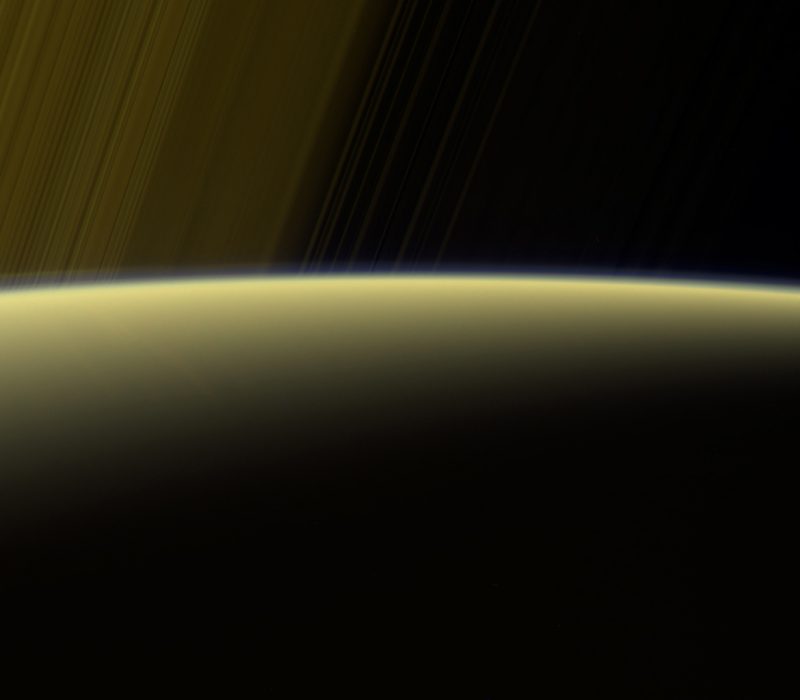
NASA’s Cassini spacecraft is now engaged in its dramatic Grand Finale year, where it’s making frequent passes between Saturn’s cloudtops and inner rings. Cassini – which has been orbiting Saturn since 2004, but is now running out of fuel – will pass through Saturn’s upper atmosphere during the last five orbits of the mission, before making a final, fateful plunge into Saturn on September 15, 2017. In the meantime, it’s capturing some last amazing images, like the one above, taken on July 16, 2017, showing haze along the planet’s horizon. Wow. We will miss Cassini.
The images were obtained using the Cassini spacecraft narrow-angle camera at a distance of about 777,000 miles (1.25 million km) from Saturn. Image scale is about 4 miles (7 kilometers) per pixel on Saturn.
The region through which the spacecraft will fly on its last orbits is well above the haze seen here, NASA said. In fact, even when Cassini plunges toward Saturn to meet its fate, contact with the spacecraft is expected to be lost before it reaches the depth of this haze.
About the false-color of this image. Saturn really does appear golden to the eye, when you view it in the night sky. Still, NASA calls this is a “false-color” view from the Cassini spacecraft. The colors likely aren’t perfect enough to be called “true” by NASA. This image is a composite, made using images taken in red, green and ultraviolet spectral filters.
Want to see Saturn? EarthSky’s planet guide is here
Read more: Saturn surprises as Cassini continues its Grand Finale
Bottom line: A July 16, 2017 image of Saturn, showing haze in its stratosphere, from the Cassini spacecraft.











